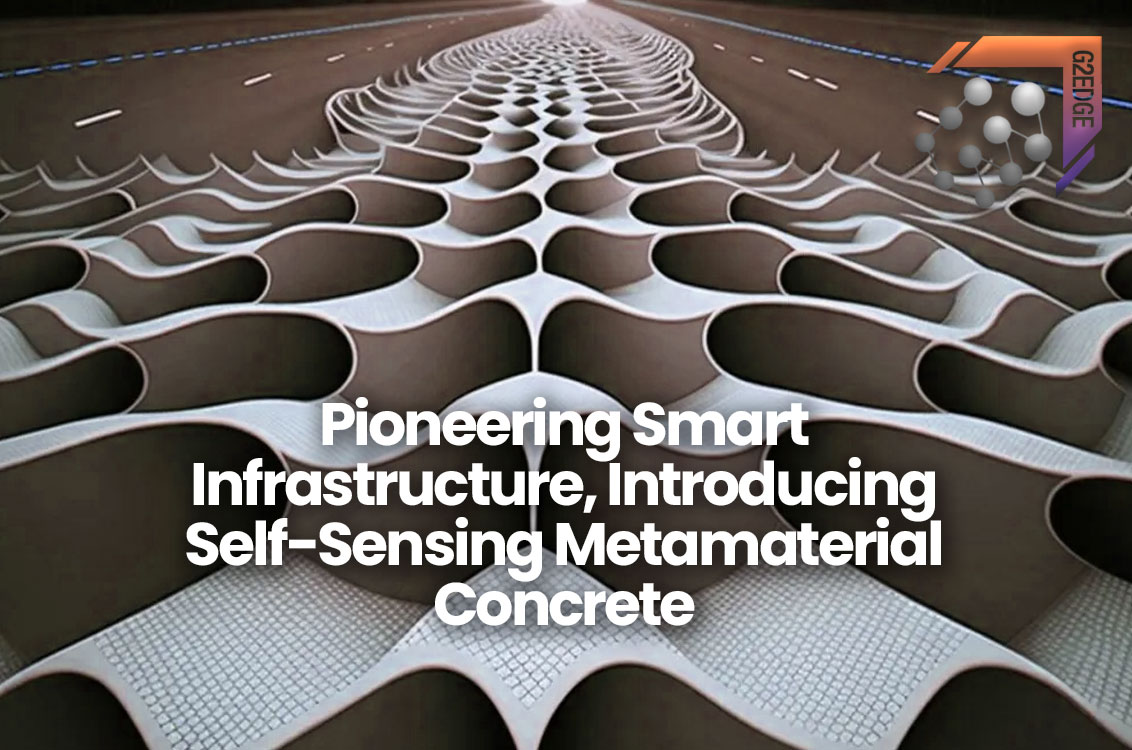 Concrete, a cornerstone of construction since the Roman Empire, is undergoing a revolutionary transformation in the 21st century. Engineers at the University of Pittsburgh are at the forefront of this paradigm shift, introducing metamaterial concrete designed to revolutionize smart civil infrastructure systems.
Concrete, a cornerstone of construction since the Roman Empire, is undergoing a revolutionary transformation in the 21st century. Engineers at the University of Pittsburgh are at the forefront of this paradigm shift, introducing metamaterial concrete designed to revolutionize smart civil infrastructure systems.
In their groundbreaking paper titled "Multifunctional Nanogenerator-Integrated Metamaterial Concrete Systems for Smart Civil Infrastructure," researchers unveil a new era in concrete technology. Led by Assistant Professor Amir Alavi of Pitt's civil and environmental engineering department, the study presents a novel concept: lightweight, mechanically-tunable concrete systems with integrated energy harvesting and sensing capabilities.
"Concrete has been a staple in construction for centuries," explains Alavi. "Our extensive use of concrete demands a new generation of materials that are both cost-effective and environmentally sustainable, while also offering advanced functionalities. We believe that metamaterials hold the key to achieving these goals."
Building on previous work with self-aware metamaterials, Alavi's team ventures into uncharted territory by integrating metamaterials into concrete fabrication. This breakthrough allows for precise tailoring of concrete attributes such as brittleness, flexibility, and shapeability, enabling builders to optimize material usage without compromising strength or durability.
"This project introduces the first composite metamaterial concrete with remarkable compressibility and energy harvesting capabilities," notes Alavi. "These mechanically tunable systems have vast potential, from shock-absorbing materials at airports to seismic base isolation systems."
Beyond its structural benefits, the metamaterial concrete boasts energy-generating properties. While not intended for grid-scale power generation, the material produces sufficient electricity to fuel roadside sensors and monitor structural integrity or seismic activity within concrete structures.
Composed of reinforced auxetic polymer lattices embedded in a conductive cement matrix, the material induces contact-electrification upon mechanical stimulation. Enhanced with graphite powder, the conductive cement acts as the electrode, generating electricity in response to mechanical stress.
Experimental trials demonstrate the material's resilience, withstanding up to 15% compression under cyclic loading while producing 330 μW of power. Collaborating with the Pennsylvania Department of Transportation (PennDOT) through the IRISE Consortium, the research team aims to deploy metamaterial concrete on Pennsylvania roads, ushering in a new era of sustainable, resilient infrastructure.
As we crack the concrete code, the dawn of smart infrastructure powered by self-sensing metamaterials promises safer, more efficient transportation networks and resilient built environments for generations to come.